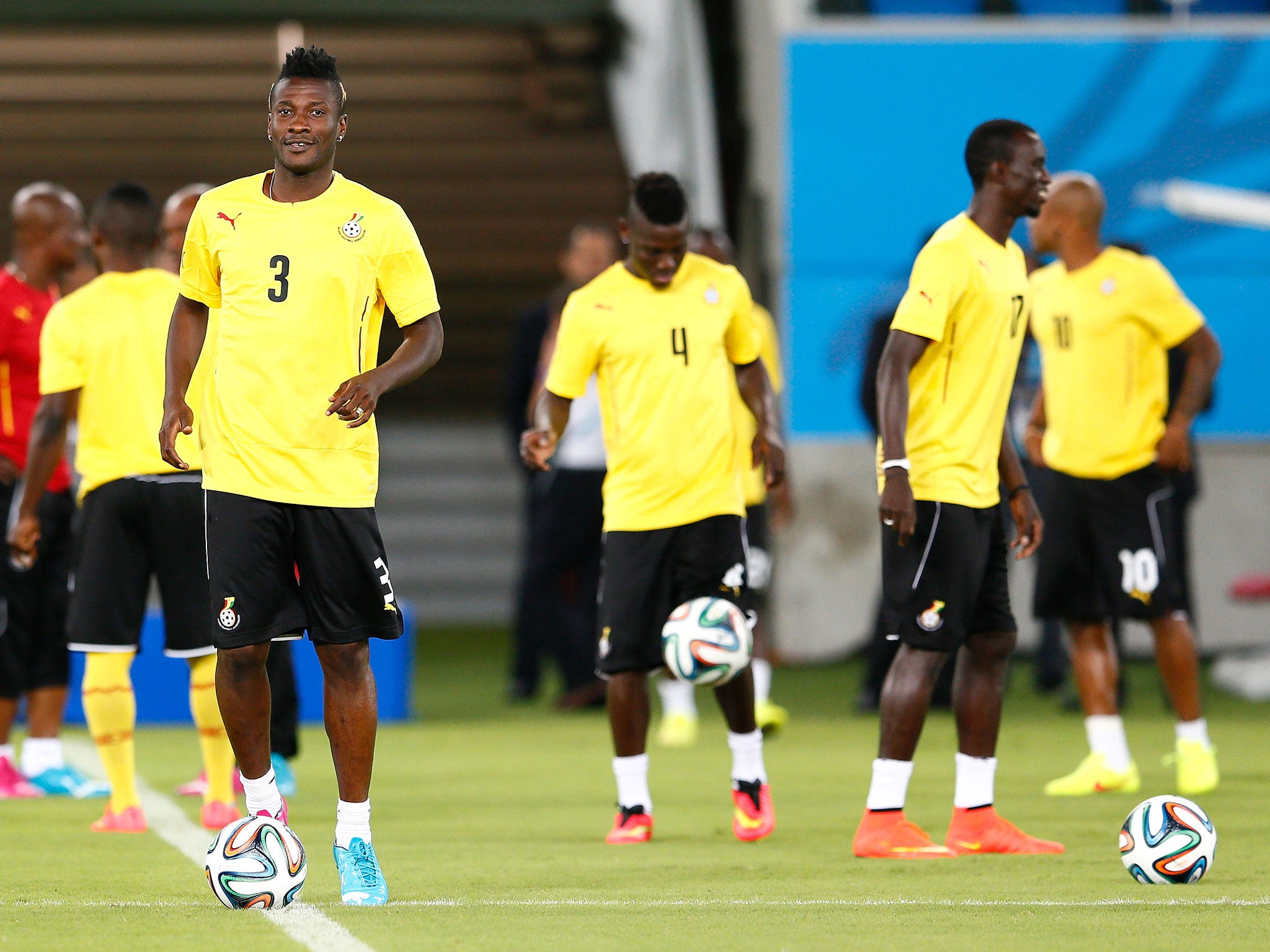Ghana v USA: All-singing and all-dancing Ghana feel right at home
Middlesbrough winger Albert Adomah says the atmosphere in Ghana’s squad is ‘unbelievable’

Your support helps us to tell the story
From reproductive rights to climate change to Big Tech, The Independent is on the ground when the story is developing. Whether it's investigating the financials of Elon Musk's pro-Trump PAC or producing our latest documentary, 'The A Word', which shines a light on the American women fighting for reproductive rights, we know how important it is to parse out the facts from the messaging.
At such a critical moment in US history, we need reporters on the ground. Your donation allows us to keep sending journalists to speak to both sides of the story.
The Independent is trusted by Americans across the entire political spectrum. And unlike many other quality news outlets, we choose not to lock Americans out of our reporting and analysis with paywalls. We believe quality journalism should be available to everyone, paid for by those who can afford it.
Your support makes all the difference.The Ghana dressing room is a special place. This is a team – they start their campaign against the United States in Natal on Monday night – with stronger bonds than most.
In the team camp, in the dressing rooms or on the coach to games, the players relax and focus through traditional and religious song and dance. YouTube is full of examples – there was a new clip last week from their team hotel.
Albert Adomah, the Ghana winger who plays for Middlesbrough, loves the richness of the experience, far removed from most teams today. “The atmosphere on the team bus is unbelievable,” Adomah said. “The singing and dancing on the bus, the traditional culture – and everyone feels right at home. They’re not just playing on their phone, texting or calling people. There is more togetherness.”
That is what it is like in training, too. “It’s just spontaneous,” Adomah added. “If you score a goal in training, everyone is dancing and singing. Some players do backflips or a traditional dance. At the moment there is a traditional dance – azonto – where you do quick feet and hand movements. ”
Ghana were the best African team in 2010, controversially beaten by Uruguay on penalties in the quarter-final. Adomah believes that the team have already got that disappointment out of their system by qualifying this time, and hopes they can do just as well this year.
Adomah watched the 2010 World Cup on television in England – he was in the process of moving from Barnet to Bristol City – but did play at Ghana’s most recent tournament, the 2013 Africa Nations Cups in South Africa. “That was my first major tournament for Ghana. I didn’t expect to play games, but I played five. We went out on pens to Burkina Faso in the semi-final. Everyone expected us to meet our rivals Nigeria in the final. It was disappointing, for a nation like Ghana. They all expect us to win a tournament like the African Nations, or at least get to the final.”
It was a useful experience for Adomah, though, now fully at home in the team he was in awe to be part of at first. Adomah – born in London to a Ghanaian family – came on as a late substitute in Ghana’s friendly against Brazil at Craven Cottage in September 2011, and had his photo taken with all of his team-mates afterwards. Adomah’s proud parents both called him immediately afterwards. “I think they were a bit overwhelmed.”
Most of those players, the stars of 2010, are still in the team. Asamoah Gyan, Michael Essien, Sulley Muntari, Kwadwo Asamoah and Dede Ayew bring more skill and experience than the United States should be able to muster. “All the big players treat everyone the same,” Adomah explained. “It doesn’t matter if you play for a League One club or Premier League, we treat each other as equals.”
Overseeing it all is Akwasi Appiah, the first black African coach to take Ghana to the World Cup. “He’s very humble,” said Adomah. “He’s a home-grown manager. It’s good to see a national team manager from the homeland. He’s just like any other manager: he wants us to play good football and win.”
Join our commenting forum
Join thought-provoking conversations, follow other Independent readers and see their replies
Comments